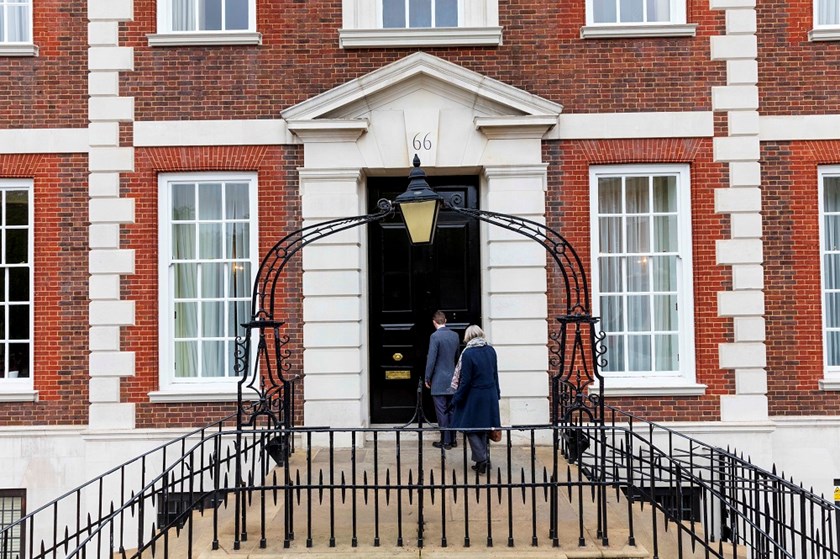A leap towards fairness - the English Court of Appeal and pragmatism in family law
Insight

The Court of Appeal handed down judgment in the case of Haley recently. It held that in family finance cases where arbitration is used to determine the award, if one party feels the outcome is unfair, the correct test for allowing them to appeal is the lower threshold of ‘wrong’ under the MCA (Matrimonial Causes Act) not the higher bar of an error that ‘leaps from the page’ under the AA (Arbitration Act).
Adapting the rules of arbitration in this way to accommodate fair solutions is a far cry from the view expressed in Prest and Petrodel, that family law is not ‘a desert island in which general legal concepts are suspended or mean something different’. The approach applied in this case could, and perhaps should, be seen as an implicit endorsement that family law is a unique and special area, underpinned by fairness, and worthy of its own framework.
There is a heightened sense of emotion in family law, due to the nature of the disagreements. Often a sense of fairness is crucial in allowing the parties to make their peace with the dispute, and the resolution, and is what enables them to feel the closure they need to move forward.
However, this isn’t just about family law being ‘different’, there is a pragmatism to this approach and in many ways this is the logical next step. It is no secret that the family, and wider court system, is in crisis. Cases are being delayed. Access to justice is being thwarted. The situation is not sustainable. A solution is needed. Change is needed. And that’s where the policy aspects of this judgement play a crucial role.
Family law, known for its ability to be forward thinking, and practical, saw the effective arbitration model used in the commercial sector and adopted it, as a method of alternative dispute resolution, some time ago. We often use it to assist our clients, commonly just on discrete issues of disagreement but also as a forum to privately, efficiently and amicably resolve all matters. This elevated court has now endorsed the use of arbitration and adapted it to better suit the needs of family law users, making it attractive and sustainable.
The benefits to be gained for adopting arbitration techniques to provide timely, effective and fair resolutions to families cannot be overstated. Successful arbitration is making a difference to people’s lives, guiding them smoothly to solutions, now with the added reassurance of fairness. This is positive not just for the individuals involved but for the court system, both practically and in terms of public confidence, and ultimately, for society as a whole. The court has used the resources and frameworks available to it and adapted those models to further the aims of justice.
Yet, this has caused some contention; some are uncomfortable with the idea that an area of law is able to pick and choose which elements of ‘the rules’ from other sectors serve it best. It may well be uncomfortable and untraditional, but if it is effective for those who need to rely on the service, then so be it.
We need structures that work in the family law arena. People should not have to choose between getting a timely solution – in arbitration – and having the fundamental principle of ‘fairness’ underpin their case – in court. Even in times of crisis people will, and should, expect access to both. This is especially important in family matters where cases can consume a person’s whole life. The court here has created an avenue whereby this can be delivered which is surely a very positive step.
Some commentators say that this judgment will not meet these goals and assist the court with its workload. Rather, some suggest it will lead to cases resolved by arbitration returning to the courts as appeals. This interpretation rather understates the reality of making an appeal under the MCA. The bar is set lower than under the AA, but there is still a hurdle to be cleared, a procedure to be followed and cost consequences to be considered. The ‘floodgates’ are not being opened here rather, protection, in the form of appeal, is being offered to those who need it.
Remember that the younger generation is growing up in the expectation of transparency. The trend is towards openness and accountability. Recent commentators have expressed a view that renowned High Court judge Sir James Holman is light years ahead of other judges in requiring family cases to be dealt with openly and transparently.
In this context, the confidentiality that arbitration affords to people who are getting divorced or dealing with family issues may be particularly attractive to anyone who wants to keep their personal affairs private and confidential. They are now more able to balance this with the broader expectation of ‘fairness’.
In this “new normal” of dealing with every aspect of life in a different way, family law arbitrations become a more enticing prospect from which many can benefit.
If you require further information about anything covered in this briefing, please contact Simon Bruce or Beth Critchley, or your usual contact at the firm on +44 (0)20 3375 7000.
This publication is a general summary of the law. It should not replace legal advice tailored to your specific circumstances.
© Farrer & Co LLP, November 2020







